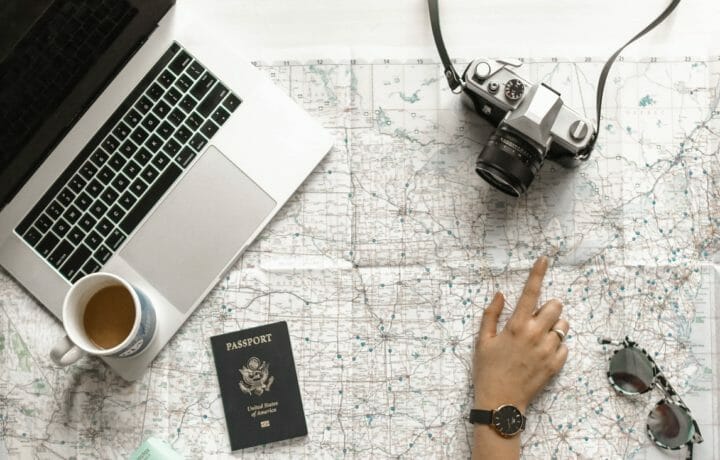Every cleared employee has heard this expression: We all belong to the “company family.” This is seldom said in irony or with an eye roll. Companies today truly try to find ways to accommodate their employees’ health and needs – all in the effort to retain good workers. Every facility – from the faceless corporate behemoth to the small private firm – tries to provide supportive family policies and accommodating workspaces. They know that if they don’t, employees might find another family to “adopt” and walk out the door. All that considered, though, there is one area where a good family knows when to say “no:” dangerous foreign travel.
Kidnappings of Americans by Hostile governments
It’s not uncommon to hear of kidnapping on the part of hostile governments – or as some nations choose to describe it, “arrest of foreign nationals.” Several citizens have been taken while on vacation, work, or even just passing through a land they thought would be a fun place to see.
Consider the odd case of Xiyue Wang, a Chinese-American researcher who was arrested by security officials in Iran. What could be less offensive than this American’s study, through a graduate program at Princeton University, of an ancient Iranian dynasty? It was out of his desire to explore this subject that he went to Iran. Nevertheless, in 2016 he was arrested. A year later, he was sentenced to ten years imprisonment on charges of espionage.
Despite the best efforts of our State Department, they have not been able to help him. He’s still in prison and the United States has distributed this statement: “The Iranian regime continues to detain U.S. citizens and other foreigners on fabricated national-security related changes.”
Prepare your employees for the realities of Foreign Travel
Companies should show their sincere concern for employees by preparing them for a trip abroad just as they would a real family member. This includes not only official travel, but personal travel, as well.
A company should make this preparation mandatory. I recall one traveler who told me in no uncertain terms that he was a “free spirit” and no “security types” would restrict his travel. Indeed, he was getting ready to travel to the Middle East, first to conduct business, then to take vacation. This conversation was conveyed to his supervisor, who reminded him that his travel was at government expense, and so came with requirements. He had to get a briefing and follow security procedures – and if not, pay the corporate penalty. He complied, albeit reluctantly.
Practical Recommendations for Keeping Employees Safe
- Require personalized, relevant, pre-travel briefings whenever an employee travels abroad. Consider the imprisoned researcher in Iran: What were the conditions in Iran when he traveled? Was he at risk for being a pawn in power struggles of which he knew nothing? You should be aware of this and share it with your employees.
- Be particularly intentional with younger employees or those with a flair for exotic locations. They may need particular guidance about which nations are not wise travel destinations. They can quite easily find themselves mixed up in an international incident if not properly advised.
- Consult the U.S. State Department. It always keeps its website up-to-date regarding threats to Americans abroad. No company family member should ever depart overseas without reading the respective State Department information, having it briefed and explained to them, and having the contact information of that U.S. embassy or consulate in his countries of destination in his possession.
- Consider a list of countries, regions, or locations that are considered off-limits. We would advise our travelers not to go to certain public areas previously targeted by terrorists. We’d also recommend getting a professional guide vetted by our embassy, if not the preferred fellow employee in country. It is always best to have a knowledgeable local than only a GPS.
- Know how your adversary operates and prepare your employees for the worst case scenario. We briefed an engineer of ours who wanted to travel to his birth country to see his parents. We advised him to avoid traveling to the country at that time and he complied. Why? We told him about the country’s new technique devised to torment Westerners. Upon a dual citizen’s return, the national police would refuse to recognize the traveler’s new country of citizenship. The customs official would have him step out of line at the airport, and security officials would appear. They’d ask, “Have you served two years in our military?” If the answer was no (which they knew already), then they would send the traveler to serve two years. The engineer wisely decided to meet his parents in another country.
- Guidance alone may not be enough. When another American official with a security clearance tried to travel home to his country of origin, the State Department denied him permission to go. There was a civil war going on and Americans were being kidnapped. The U.S. government can deny Americans with U.S. passports the right to travel abroad; this may be because they can’t assure their safety, or because there is no U.S. representation in that country at all.
If we claim we are a corporate family, then we need to act like it. As Americans who believe in individual freedom, we want to be patient and understanding of our employees’ desires. However, we also need to take care that those beliefs are not necessarily respected around the world. Show real care for our travelers – and be sure they understand that sometimes “no” is the best answer.




